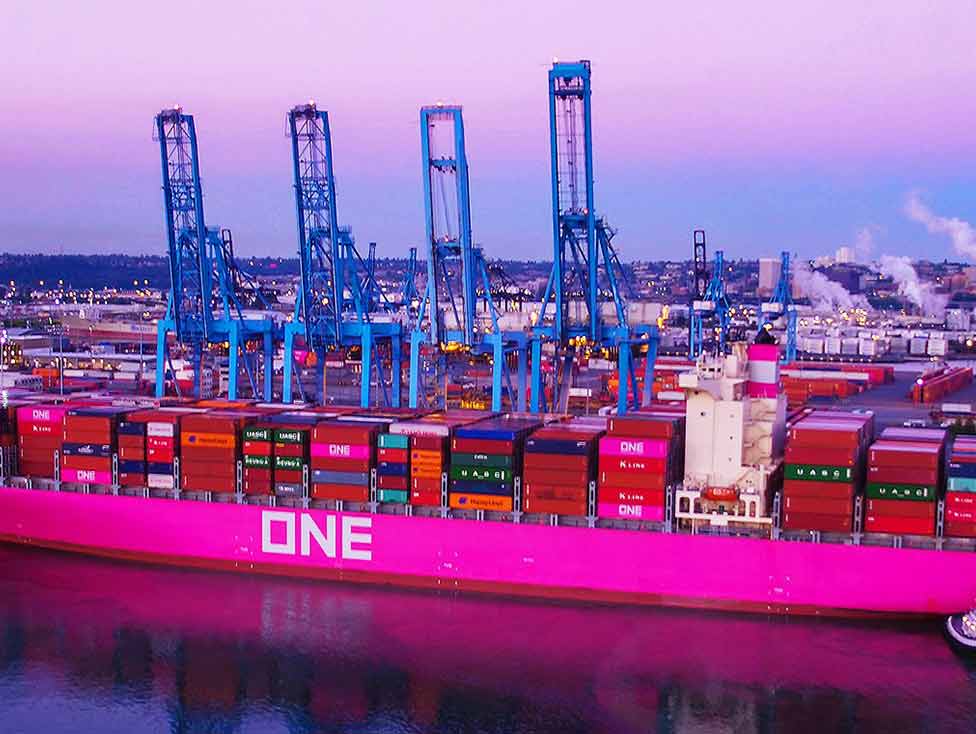- 9 min. read
- Article

- Managing Cash Flow
- Enable Growth
Cash management in Asia: The key trends to empower treasury
By understanding the key economic, financial, and technological developments in Asia, corporate treasurers can understand and reposition their roles to benefit the overall performance of the company.
The economic and financial landscape has transformed significantly over the last twelve months. As a result, corporate treasurers need to navigate a range of challenging developments.
The first is changing market conditions. After years of low interest rates, treasurers are now coming to terms with a sharp series of rate hikes. China has reopened after several years of pandemic restrictions, putting the world’s second largest economy firmly back on the treasury agenda. And finally, there are the ongoing demands of technology, which treasurers need to keep abreast of.
In this article, we explain how treasurers in Asia can thrive in this new environment and continue to make a meaningful contribution to the entire organisation.
A new monetary paradigm
The current round of US interest rate hikes is already the fastest upward shift in monetary policy since the 1980s1 - a rapid reversal of a situation, where the cost of borrowing had sunk so low that some European countries offered negative rates.
For some corporate treasurers, these new monetary policy conditions present significant cash management challenges. This is especially true for companies with high levels of debt that must now manage higher repayment costs. Another group of companies that need to adjust are fast-growing technology businesses that in the past could rely on fresh rounds of funding to maintain their cash position.
Companies in this situation should look closely at their liquidity situation and debt obligations so that they can assess how much cash they have available, as well as their future outgoings. For companies with geographically dispersed operations, centralising funds can help ensure that the business is able to fully utilise its money, while providing broader benefits to operational efficiency.
Risk management has also grown in importance, due to recent market developments and the need to manage counterparty risk more effectively. Suppliers, for example, might have reduced access to affordable capital, which can affect their ability to meet their obligations to buyers.
Going forward, treasurers can pay more attention to contracts, assess their liquidity situation, and manage concentration risk by reviewing banking relationships in a more holistic manner. Now is a good time for treasurers to re-evaluate how they can manage the company’s cash in an uncertain, and volatile macroeconomic environment.
Another important consideration for corporate treasurers is the investment strategy, which will likely need to be adjusted to reflect the new monetary backdrop. Even businesses with healthy reserves should reassess their investment policies so decisions related to the management of cash follow a detailed framework that covers everything from asset allocation and investable securities, to yield, duration and credit ratings.
China’s reopening
One of the key economic themes of the year is China’s economic reopening after nearly three years of pandemic restrictions – a development that will have implications across Asia, and beyond. The International Monetary Fund forecasts that the Chinese economy will grow by 5.2% in 2023, compared with 3% last year2. The recent economic data suggests that the recovery is already underway – especially in the service sector, where activity reached a 12-year high in March3.
The pick-up in the Chinese economy will be felt across a broad range of sectors. Pent up demand among consumers is leading to so-called “revenge spending”, which will occur both domestically and overseas, as Chinese tourists start travelling again. This consumption will also be supported by the RMB 6.55 trillion in savings that mainland Chinese residents have saved over the pandemic, around 5.4% of nominal GDP4.
Treasurers can prepare their business for this fresh wave of China opportunities, by making sure that they have the right collections and receivables tools in place so that they can accept payments via the channels that Chinese customers expect.
They can also familiarise themselves with the technological and regulatory developments that are especially relevant to cash management – most notably, the emergence of the eCNY, as well as strategic government initiatives that are supporting cross-border cash pooling, which is positive for trade and investment.
How digital payments and automation are reshaping engagement
The final area that should capture the treasurer’s attention is the ongoing adoption of digital, a trend that accelerated over the pandemic. Consumers are more comfortable using online banking services via a smartphone, as well as paying for goods and services with digital wallets. This is especially true in emerging markets like China, India and Thailand, which have leapfrogged their developed counterparts, in part due to supportive policies by regulators.
China is already a world leader in digital finance. So too is Southeast Asia, where the number of consumers is expected to increase to 623 million people by 2030, which would make it the world’s fourth largest economy5. Asia also promises to fully utilise artificial intelligence. It is the hottest topic in technology today, with the potential to deliver enormous benefits to corporate treasurers – in particular, unleashing a fresh wave of automation on processes that typically require human input.
Treasurers can equip their business with the right tools to thrive in a tech-driven environment. On the payments front, there are a large number of real-time payment platforms that a treasurer can bring into their portfolio of accepted payments.
More broadly, technology provides a new channel for companies to engage with their partners.
The travel sector is one such sector, where payments for multiple goods and services – such as plane tickets and hotel reservations – can be conveniently integrated and paid for in one place. Beyond companies that are already largely online, more traditional companies in sectors like shipping and manufacturing are also exploring how they can take advantage of new direct-to-consumer (D2C) models and reshape their payment strategy.

Case study – Ocean Network Express
Ocean Network Express (ONE) is one of world’s leading logistics companies, providing services in 106 markets via one of the world’s largest container ship fleets. In an industry that is still dominated by paper-based transactions, ONE decided to transform its customer journey by adopting the very latest digital payment solutions from HSBC.
These include:
- QR code-enabled invoices in Hong Kong and Singapore that can be scanned by a mobile banking application.
- Leveraging HSBC’s Omni Collect solution in Indonesia, allowing customers to pay for invoice digitally on the One-line e-portal, via a HSBC API integrated payment gateway.
After successfully integrating digital payments into its offering, ONE provided a better customer experience, increased scale, higher efficiency with reduced operational risks, and greater automation on receivables’ reconciliation.
Making a measurable contribution
The complex and rapidly evolving global backdrop means that corporate treasurers in Asia need to be more agile than ever before. In addition to keeping pace with regional technological and regulatory developments, they have to understand how broad economic trends – like the potential of the rising Asian consumer – to understand the impact on business growth.
When a treasurer successfully manages all these tasks, they make a real contribution to the operations of the entire organisation. Speak to your Global Payments Solutions contact or relationship manager to find out how HSBC works with corporate treasurers to open a world of opportunity across Asia Pacific.


